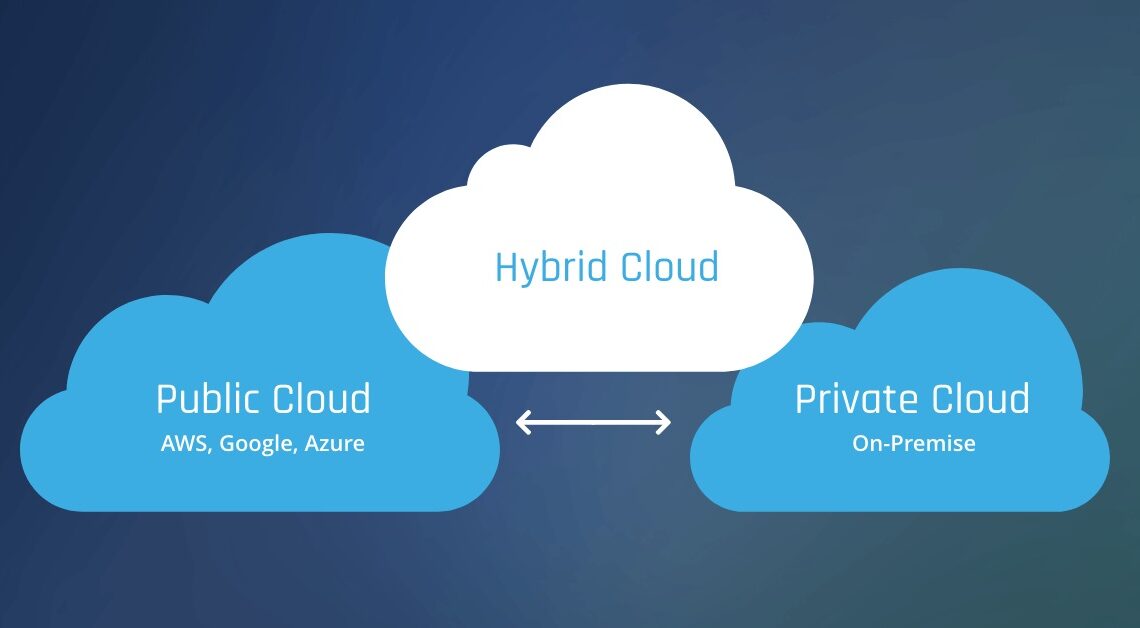
As the use of cloud technology becomes increasingly popular, more and more businesses are turning to hybrid cloud solutions to meet their unique needs. In this blog post, we’ll explore what a hybrid cloud is, the benefits it offers, and everything else you need to know about it.
What is a hybrid cloud? A hybrid cloud is a cloud computing model that combines the use of public and private clouds. In other words, it is a combination of two or more clouds, which can be either public, private, or both, that work together to provide a single, unified cloud computing environment. This allows businesses to leverage the benefits of both private and public clouds while also addressing any potential drawbacks.
Benefits of a hybrid cloud
- Increased Flexibility: One of the main benefits of using a hybrid cloud is that it offers increased flexibility to businesses. Companies can choose which applications and data to keep on the private cloud and which ones to store on the public cloud, depending on their specific requirements. This allows for a more customized and flexible solution that can be adjusted as needed.
- Improved Security: With a hybrid cloud, businesses can keep their sensitive data and applications on the private cloud, which offers higher levels of security than the public cloud. This ensures that confidential information remains safe and secure while still allowing for the flexibility and scalability of the public cloud.
- Cost-Effective: A hybrid cloud can be a cost-effective solution for businesses as they only pay for the resources they need. By utilizing a public cloud for non-sensitive data and applications, businesses can save on infrastructure and maintenance costs while still having access to the necessary resources.
- Scalability: The hybrid cloud allows businesses to easily scale their resources up or down as needed. If a company experiences an increase in demand, they can quickly and easily scale up their resources by leveraging the public cloud, without having to worry about infrastructure and maintenance costs.
- Disaster Recovery: With a hybrid cloud, businesses can implement a disaster recovery plan that takes advantage of both private and public clouds. This ensures that in the event of a disaster or outage, the business can continue to operate without interruption.
- Improved Performance: By utilizing the public cloud for non-sensitive applications and data, businesses can improve the performance of their critical applications and data on the private cloud. This ensures that the most important data and applications have the necessary resources to perform at their best.
Things to Consider When Adopting a Hybrid Cloud
- Compatibility: Before adopting a hybrid cloud, businesses need to ensure that their existing applications and infrastructure are compatible with the hybrid cloud environment.
- Security: Businesses must take necessary precautions to ensure that their sensitive data and applications are secure on the private cloud.
- Cost: Although a hybrid cloud can be a cost-effective solution, businesses must carefully consider the costs associated with maintaining and managing a hybrid cloud environment.
- Integration: Businesses must ensure that the hybrid cloud is integrated seamlessly with their existing infrastructure and applications.
- Maintenance: Maintaining a hybrid cloud environment requires specialized skills and expertise. Businesses must ensure that they have the necessary resources to manage and maintain their hybrid cloud.
Conclusion
A hybrid cloud offers businesses the flexibility, scalability, and cost-effectiveness of the public cloud while also providing the security and customization of the private cloud. As with any cloud computing solution, businesses must carefully consider the benefits and challenges associated with adopting a hybrid cloud to ensure that it meets their specific requirements. By doing so, businesses can take advantage of the benefits of a hybrid cloud while also addressing any potential drawbacks.
Read: A brief introduction to Cloud Computing in Kenya

